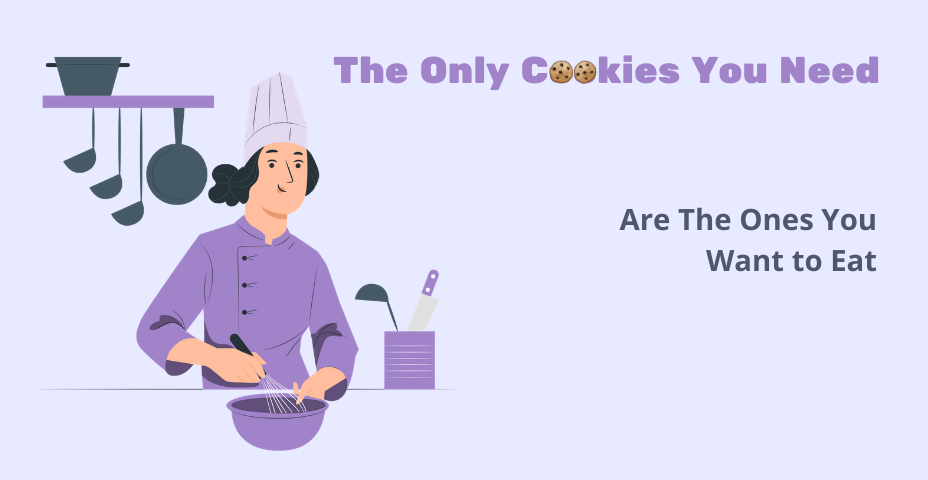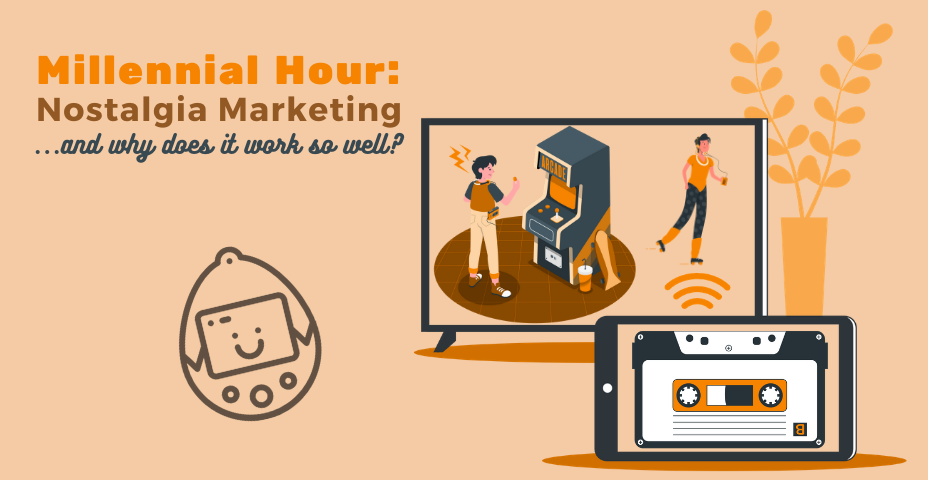My grandma makes the most delicious cookies, and now Google wants to kill them.
Wait, what?
Sorry, that was just a nightmare I had.
The reality, on the other hand, is that Google has decided to end its support of third-party cookies on the Chrome browser within the next two years. This seemingly small step has huge implications for digital marketers, ad creators, and even content writers who all need to become extra flexible in their strategies.
In April 2016, Google announced it has over 1 billion active users. By 2019, Google Chrome had more than 5 billion user installs. That’s a lot of cookies.
What Are Web Cookies
Websites’ almost evil spies
Cookies are these annoying pieces of code that come from a particular website (the “this site uses cookies” type of thing), and their goal is to attach themselves to your browsing history, so they can learn more about your online behavior. That way, companies can tailor their content to match your preferences.
What started as an innocent idea to increase consumer understanding, rapidly became a powerful tool for the marketing information chain of many businesses. Like a Big Brother users agree to have in their browser’s backyard. So, naturally, they have to go. Sort of.
A Shift Toward Better Privacy
The Introduction of the GDPR and CCPA
It’s no surprise that amid the increased concerns about personal privacy, the Facebook data leak scandal, and the introduction of data protection legislation, Google decided to end cookies. The California Consumer Protection Act (CCPA) and Europe’s General Data Protection Regulation (GDPR) are new laws that resulted from consumers becoming more and more aware of how their personal data is stored and collected without their knowledge.
Apple was quick to add an Intelligent Tracking Prevention (ITP) feature to its own browser – Safari. The goal of the ITP is to limit the ability of companies to track people’s browsing behavior when they visit other websites. In 2019, Apple released an improved version of the ITP, so it automatically deletes client-side cookies just 24 hours after they have been installed on a browser.
Safari isn’t the only browser that does that. All major browsers are now deleting third-party cookies faster than ever before.
What Does It Mean for Marketers
Cookies won’t do the heavy lifting anymore
User data privacy issues are no news in the world of digital marketing. The CCPA and GDPR are examples of how legislation is trying to manage how major ad companies like Google and Facebook are dealing with user data.
First-party cookies (cookies stored by the domain you’re visiting, not your browser) are also taking a hit with a decreased shelf life of 7 days. Here are a couple of ways this will affect you and your fellow marketers:
- You will only have a time window of 7 days to look back on your remarketing program
- Your ability to personalize your content will only have a pool of a week’s worth of information
- Tracking unique visitors will only encompass people who returned to your website in less than a week
- A/B test results will clear after 7 days, which can mislead your content strategists
- It can become much harder for users to come back to your website and pick up where they left off (e.g., shopping cart, form filling, etc.)
You see, the problem with cookies is that they are old-school and pretty naive (not that they are living creatures, but if they were, they’d be the equivalent of a 5-year old). They were developed in 1994, and their hamartia is that they can’t really tell the difference between a “good” or “bad” use of the information they collect.
As for content, the content writing agency you hire, or are already working with, should be prepared to navigate through challenges like scarce user information and limited customization capabilities.
What Will Replace Cookies?
An unexpected opportunity
It’s no secret to many marketers that third-party cookies were never the ideal solution. They’ve been living on borrowed time for years, and it’s true that cookies have made many marketers lazy about getting to know their customers better and actually care enough to nurture relationships with them. Well, free lunch is over. Oversnacking on cookies from the likes of Google and Facebook will soon not be possible.
Instead of cookies, Google will develop its own browser-based tools and methods to balance user privacy and user customization opportunities.
What you can do instead is collect user data in your own database. Incentivize people to leave you their email addresses, be shrewd about your email newsletter strategy, and lead generation funnel. Sit down with your writers and re-invent your digital marketing strategy.
Sure, you still have some time before third-party cookies disappear, but why wait around for the inevitable when you can start acting today?
Happy Friday and till next time,
T.






